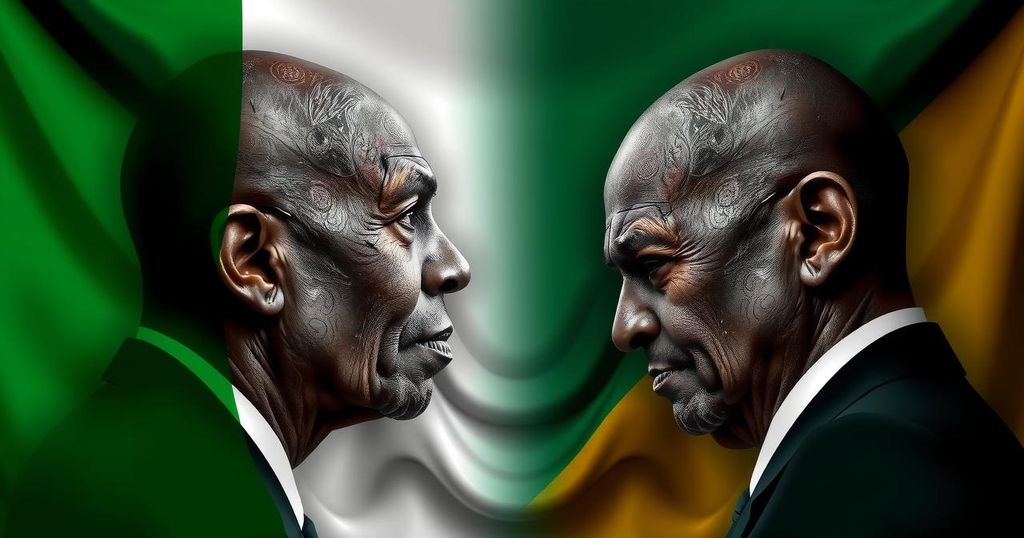The Implications of President Hassan Sheikh Mohamoud’s Policies on Somalia and the Horn of Africa

President Hassan Sheikh Mohamoud’s policies jeopardize the stability of the Horn of Africa by undermining Somaliland’s self-determination and blocking Ethiopia’s access to Red Sea trade routes. His actions threaten regional alliances and could reignite tensions with Ethiopia, complicating Somalia’s already fragile internal situation. Recognizing and supporting Somaliland’s economic ties with Ethiopia is crucial to preventing conflict and fostering development in the region.
The intricacies of the Horn of Africa’s geopolitical landscape have long been influenced by historical, political, and economic factors. Presently, a notable threat to the region’s delicate equilibrium emerges from the actions of President Hassan Sheikh Mohamoud of Somalia. His policies not only jeopardize the safety of approximately 120 million individuals but also place Somali-Ethiopian relations at risk. By refusing to acknowledge Somaliland’s right to self-determination and attempting to impede Ethiopia’s access to crucial Red Sea ports, President Mohamoud’s actions could lead to heightened regional tensions and a destabilization of the established geopolitical balance. Somaliland, having declared independence from Somalia in 1991, represents a successful model of governance with stable democratic frameworks and economic advancement. With its strategic proximity to Ethiopia, Somaliland has been able to engage in several international agreements, particularly a partnership with the United Arab Emirates to manage the Berbera Port via DP World. This development has solidified Somaliland’s role as a vital economic partner, particularly given that an estimated 40 million Ethiopians depend on trade routes through the Red Sea. By obstructing Somaliland’s progress and imposing sanctions, President Mohamoud risks not only undermining its economic gains but also destabilizing Ethiopia’s own economic framework. His approach is deemed a grave political error that could rekindle hostilities in the Horn of Africa, especially with Ethiopia, which plays an instrumental role in maintaining regional stability. Secure access to Red Sea ports has been a pivotal aspect of Ethiopia’s geopolitical strategy, and denial of this access could incite further hostility. Adding to the complexity of the situation is the ongoing internal unrest in Somalia. For over thirty years, the nation has grappled with civil warfare, terrorism, and external influences. While Somaliland has cultivated peace and economic growth, Somalia continues to depend heavily on African Union forces to combat Al-Shabaab insurgencies. President Mohamoud’s preoccupation with undermining Somaliland, rather than addressing the needs of his own beleaguered nation, may extend Somalia’s internal crises and hinder efforts toward establishing a stable government in the southern territories. Furthermore, President Mohamoud’s alliance with Egypt in a tripartite agreement involving Eritrea places additional strain on the regional dynamics. Egypt’s motivations, rooted in securing its Nile access, could exploit Mohamoud’s stance as leverage against Ethiopia, further raising the specter of proxy conflicts, particularly in southern Somalia. This potential for conflict could significantly disrupt progress in the region for years to come. The international community bears a profound responsibility to advocate for Somaliland’s right to self-governance and economic collaboration with Ethiopia. Strengthening Somaliland’s economic relationships with Ethiopia, which could ultimately benefit 120 million individuals, is essential for regional prosperity. It is vital to ensure that jealousy, religious biases, or personal grievances do not obstruct this critical opportunity for advancement. Ultimately, the policies endorsed by President Mohamoud jeopardize the prospect of peace and stability, threatening the overall welfare of the Horn of Africa. His refusal to recognize Somaliland’s independence, combined with antagonistic tendencies toward Ethiopia, may incite enduring conflicts that could reshape the region’s geopolitical dynamics for decades. For the sake of lasting peace and development, protecting the partnership between Somaliland and Ethiopia is imperative.
The Horn of Africa is a region characterized by a complex interplay of historical, political, and economic elements that have shaped its stability and power dynamics. Somalia, having faced prolonged periods of civil unrest, is represented by President Hassan Sheikh Mohamoud, whose governance approach poses significant risks to both internal stability and regional relations, particularly with Ethiopia. Somaliland, a self-declared independent state since 1991, presents a contrasting narrative of progress and stability, and it plays a crucial role in regional trade, particularly with Ethiopia. The geopolitical landscape is further complicated by the involvement of Egypt, which may seek to use Somalia’s internal vulnerabilities for its own ends. This situation requires careful attention from the international community to support self-determination and economic collaboration in the region.
In summary, President Hassan Sheikh Mohamoud’s policies and his antagonistic stance towards both Somaliland and Ethiopia pose significant threats to the stability of the Horn of Africa. His refusal to embrace Somaliland’s right to self-determination and efforts to obstruct trade routes could lead to renewed tensions and conflict, jeopardizing the lives of millions. It is imperative that the international community intervenes to uphold principles of cooperation and stability, ensuring that regional partnerships, particularly between Somaliland and Ethiopia, are recognized and supported for the greater good of the region.
Original Source: www.modernghana.com








